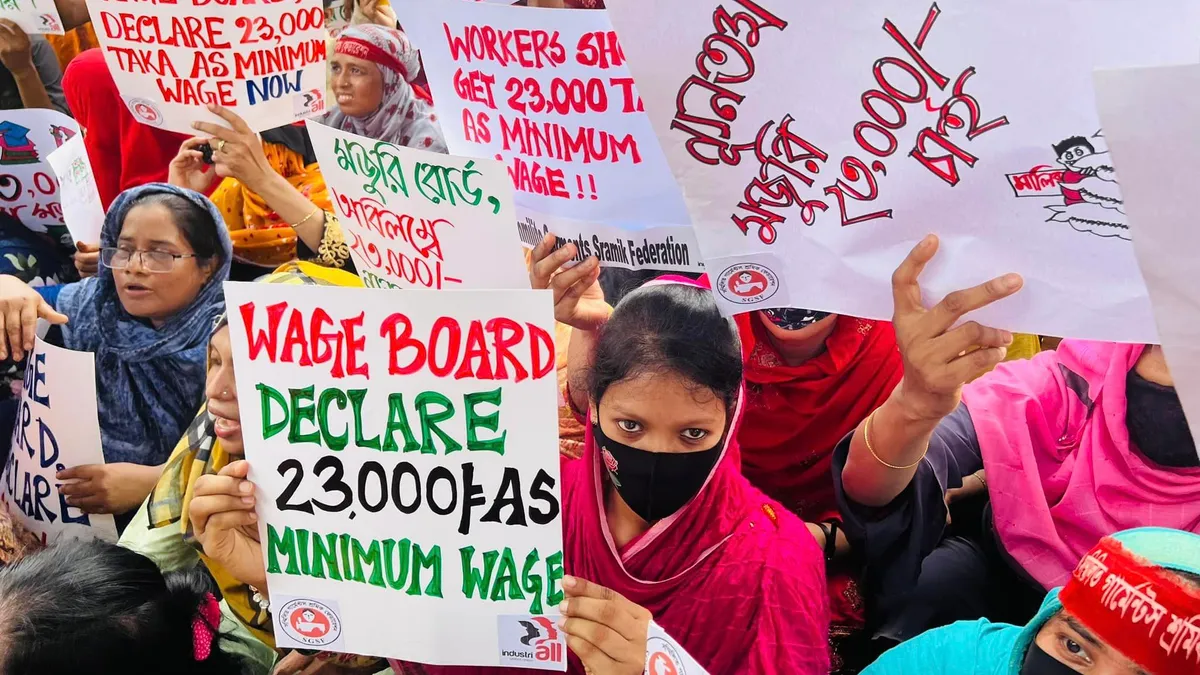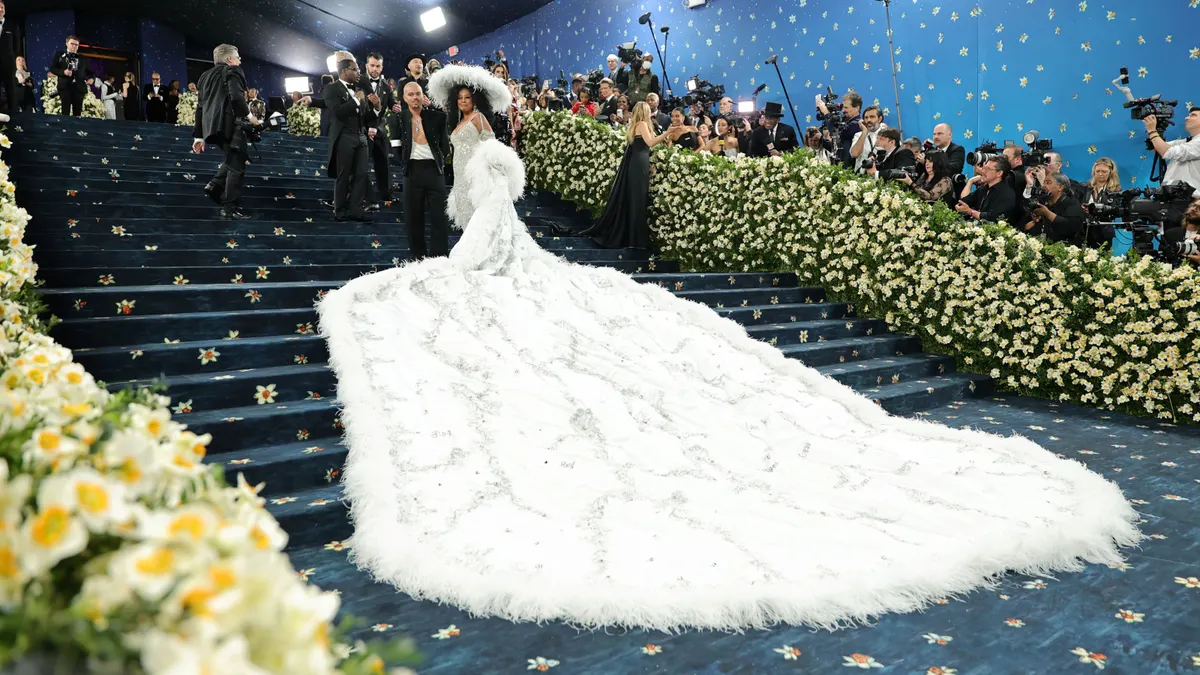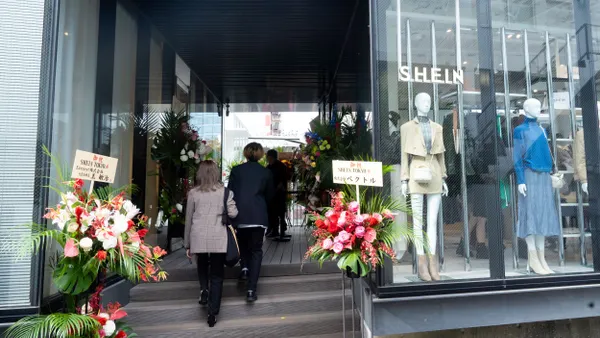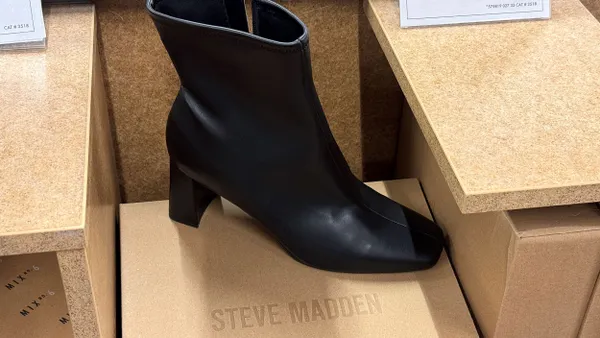Dive Brief:
- The government of Bangladesh has delayed its decision on the minimum wage for garment workers after days of violent protests in which two garment workers died, one allegedly shot by police, according to an Oct. 31 online press conference co-hosted by Asia Floor Wage Alliance and advocacy group Remake. The decision was originally set for Nov. 1.
- The government board tasked with the decision did agree to reduce the number of pay grades from seven to five, per workers’ demands, Remake said in an email to Fashion Dive. Garment workers can seek promotion every two years, so this reduction “is a way to promote workers more easily into the higher paying categories,” said Remake.
- Garment workers in Bangladesh have been pressing for a minimum wage of 23,000 taka per month, or $208 at current exchange rates. That’s an increase from the current wage of 8,000 taka, which is lower than the minimum wage for garment workers in China, India, Vietnam, and Cambodia, as stated during the press conference.
Dive Insight:
In recent days, garment workers have been protesting in the streets, with some setting fire to garment factories, according to local reports. On October 30, Muhammad Rasel Hawlader, a 25-year-old maintenance machinist at Design Express Garments Ltd. died after being shot by Bangladeshi police, according to a release announcing the press conference. Hawlader had been leaving the factory where he worked and ran into a clash between workers and police, said local union leaders at the conference.
Union leaders at the press conference urged brands to show solidarity with worker demands. “We are struggling in our day-to-day lives,” said labor union leader Khadiza Akter. “I think the global fashion industry and brands know about it, but they are getting better at lowering prices in our country… and are always looking for their profit and are not focusing on our side.”
Bangladesh is the second-largest exporter of ready-made garments in the world. The ready-made garment sector employs 4.4 million workers, and 65% of them are women, according to a release posted ahead of the press conference, which also stated that the sector contributes to 80% of export earnings and 11% of the Bangladeshi national GDP.
But a report in May by AFWA found that Bangladeshi garment workers typically consume 1951 calories a day, which is below the poverty standard set by the Bangladeshi government, Tonima Hamid Sumi, organizing secretary of the Bangladeshi union Garment Workers’ Unity League, said in the press conference.
Additionally, the report found that garment workers’ family incomes were not enough to cover basic expenses. Meanwhile, AFWA is calling out brands such as Nike for spending billions on stock buybacks but not paying workers sufficiently.
In October, a group of fifteen brands, including Lululemon, Abercrombie & Fitch, Levi Strauss, Patagonia and others, signed a letter to the government supporting an increase in the minimum wage that would be “sufficient to cover workers’ basic needs and some discretionary income and takes into account inflationary pressures.” A similar letter was signed in September by a group of 19 brands, including H&M and Inditex.
“H&M Group supports higher wages in the ready-made garment sector in Bangladesh,” H&M wrote in an email to Fashion Dive. “As [a] brand we recognise the important role we play to empower workers and to facilitate the payment of living wages through responsible purchasing practices.”










